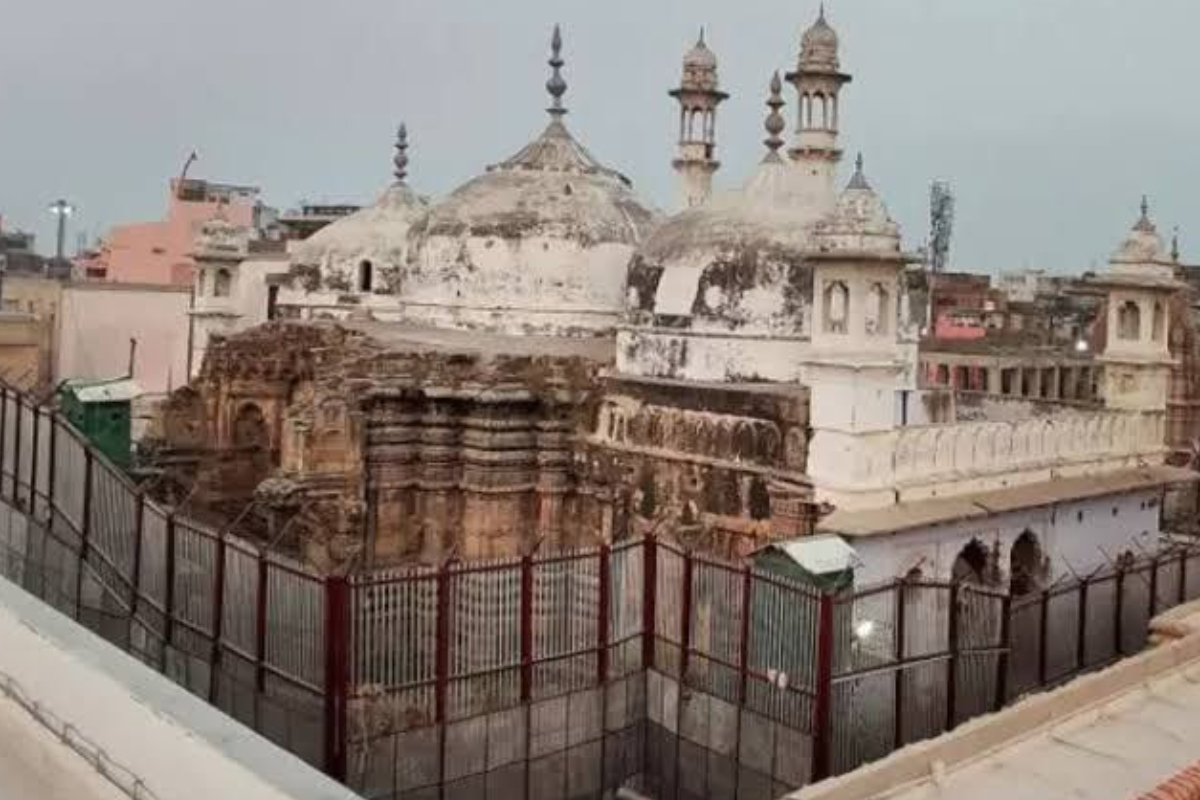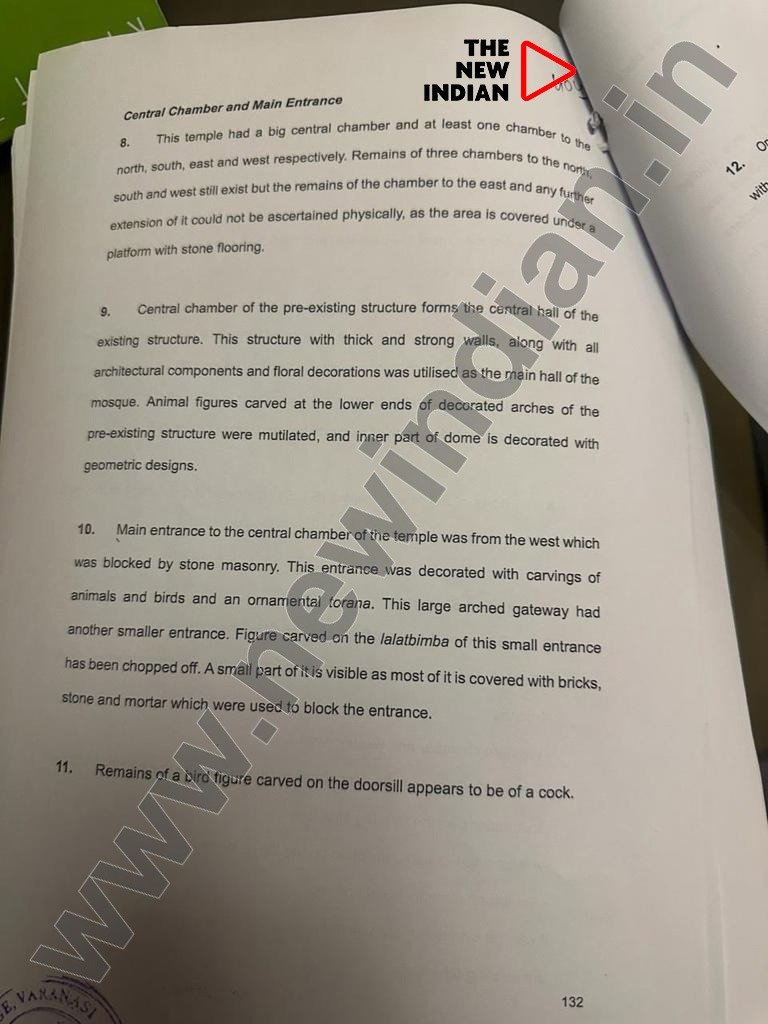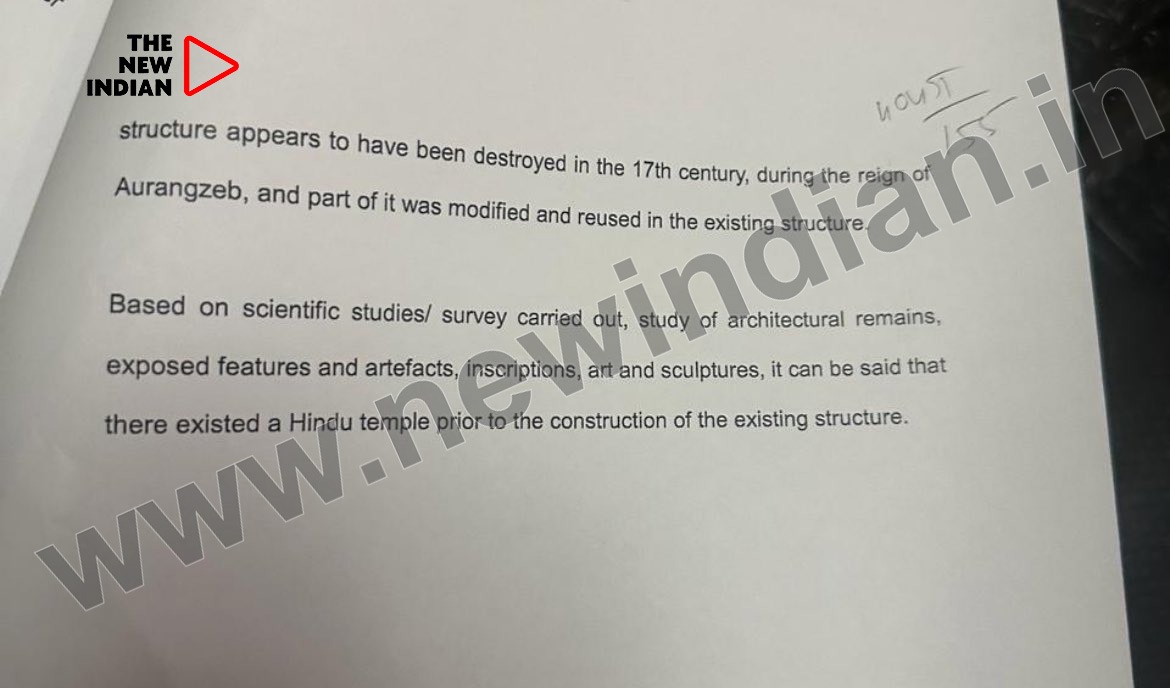

NEW DELHI: On Thursday, the report by Archaeological Survey of India (ASI) confirmed the existence of a large Hindu temple predating the Gyanvapi mosque in Varanasi. The exhaustive 839-page report, submitted to the Varanasi district court last month and now made public, sheds light on the historical origins of the contested site.
READ MORE: Gyanvapi verdict looms: Hindu, Muslim sides await ASI report details
The ASI’s investigation, conducted following a court order in response to a petition filed by a Hindu trust seeking the restoration of the temple, revealed that the Gyanvapi mosque complex was constructed over a pre-existing Hindu temple. The report states, “It can be said that there existed a large Hindu temple, prior to the construction of the existing structure.”

The survey identified 32 points within the mosque complex where evidence of the Hindu temple’s presence was found. The western wall of the mosque was determined to be a part of the original Hindu temple, and columns within the structure were associated with the ancient temple.
READ MORE: Court dismisses Gyanvapi Mosque appeals, permits ‘temple restoration’ lawsuit
The ASI report delves into historical details, indicating that on September 2, 1669, the temple was demolished, and its columns were repurposed in the construction of the mosque. It reads, “On September 2, 1669, the temple was demolished. The columns of the temple were used in constructing a mosque. Sculptures of deities were found in the basement. Inscriptions related to Omesvara, Rudra, and Janardana were discovered.”

Further analysis of the pillars and plasters used in the mosque revealed that they were originally part of the pre-existing Hindu temple, modified and mutilated during the construction of the mosque.
READ MORE: Vishnu Shankar Jain claims victory in Gyanvapi mosque’s reclamation
The survey documented a total of 34 inscriptions during the investigation, with 32 estampages taken. These inscriptions, in various scripts including Devanagari, Grantha, Telugu, and Kannada, were found to be reused stones from the original Hindu temple, suggesting the destruction of the earlier structures.
“They include inscriptions in Devanagari, Grantha, Telugu, and Kannada scripts. Reuse of earlier inscriptions in e structure, suggest that the earlier structures were destroyed and their parts were reused in construction/repair of the existing structure,” the report read.
READ MORE: Gyanvapi Mosque case: ASI survey on hold till judgment day
The ASI began its scientific survey of the Gyanvapi premises in August last year, as directed by the court, amidst tight security. The investigation was part of a legal dispute initiated by a Hindu trust, claiming that the mosque was built by Mughal emperor Aurangzeb after demolishing the original Kashi Vishwanath temple in the 17th century.

The Allahabad High Court had earlier upheld a Varanasi district court order, deeming the survey ‘necessary in the interest of justice’. The Apex Court did not intervene, as the Solicitor General assured that no structures would be damaged during the survey. The revelation of the ASI report is expected to have far-reaching implications on the ongoing litigation surrounding the historic site.
READ MORE: Gyanvapi mosque case: Fresh hearing scheduled for tomorrow – THE NEW INDIAN